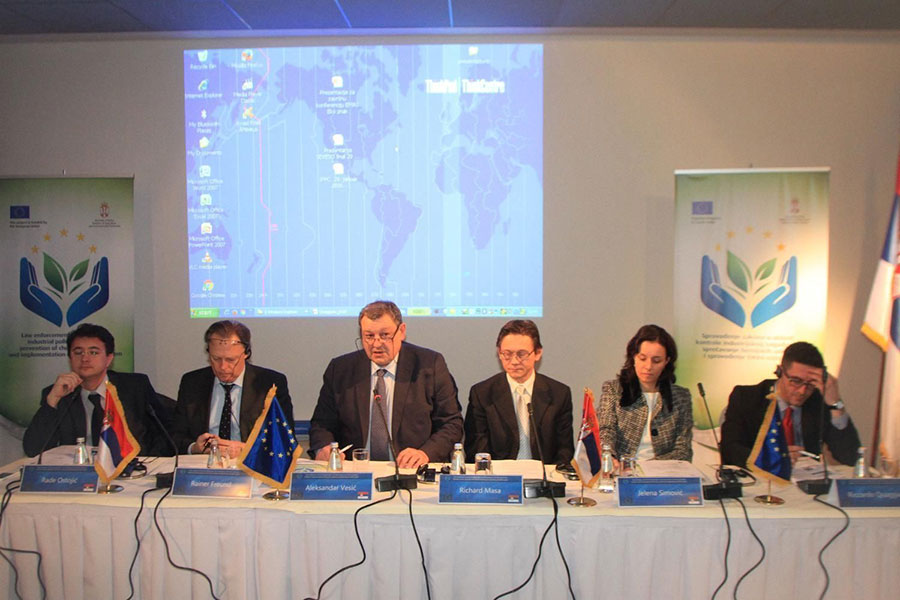On 29 January 2016, the EU delegation and the Ministry of Agriculture and Environmental Protection marked the successful completion of a 3.5 year-long EU project “Law Enforcement in the field of Industrial Pollution Control, prevention of Chemical Accidents and establishing the EMAS system”. The EU has donated € 3 million for this project to support the preparation of Serbian industry for meeting the EU pollution and safety standards and the capacity of the Serbian regulators to support and oversee the required adaptation process.
The project final event was held on Friday, January 29th, 2016 at the Holiday Inn Hotel, in the presence of Ms Stana Božović, State Secretary, Ministry of Agriculture and Environmental Protection, Ms Mirjana Filipović, State Secretary, Ministry of Energy and Mining and ̵ Mr Richard Masa, Head of Section at the EU Delegation of Serbia.
After EU accession negotiations were launched in January 2014, the analytical examination (screening process) of Chapter 27- which relates to the environment – was completed in March 2015 and the European Commission is finalising the screening report. Serbia is currently finalising the action plans required for the opening of the environment chapter.
A country’s ability to enforce environmental legislation is a key criterion when assessing readiness for candidate status and ultimately the EU membership. In line with the set environmental priorities, the project was designed to address the full harmonization of the Serbian legislation with the IPPC /IED and Seveso Directives. The project has also helped the introduction of Ecolabel Regulation and the EU Eco Management and Audit System (EMAS) – a voluntary certification system flagging to regulators and customers application of environmental standards exceeding legal requirements (EMAS III (Regulation )
Compliance of the Serbian Industry with the EU Industrial Emission Standards has been one of the priorities of the project as these standards are relevant for approximately 500 operators in Serbia, representing the most important industrial sectors such as energy, minerals, cement, chemicals, steel and large scale agriculture. Whilst most operators will have to achieve the EU standards on the date of the EU accession of the country, for some operators which meet specific criteria the country can negotiate so called “transition periods”. The transitions periods allow the selected companies to make the necessary investments for achieving EU standards during a limited period after the EU accession date.
The project has assessed investment requirements for the selected operators and has prepared a Directive Specific Implementation Plan that will be used as the basis for development of the country position paper for the accession negotiations and determination of possible transition periods with the European Commission.
The Conference represented an opportunity to present the main results and impact of the activities carried out by the project and to discuss the current status of the implementation and future negotiating position with the main stakeholders of the project: public administration at central, regional and local level, industrial operators and the civil society organisations.
The project was implemented by Hulla&Co Human Dynamics KG (Austria) in a consortium with four other international consultants, Regional Environmental Center (Hungary), RPS (The Netherlands), Mobilisation for Environment (The Netherlands) and Umweltbundesamt (Austria).




